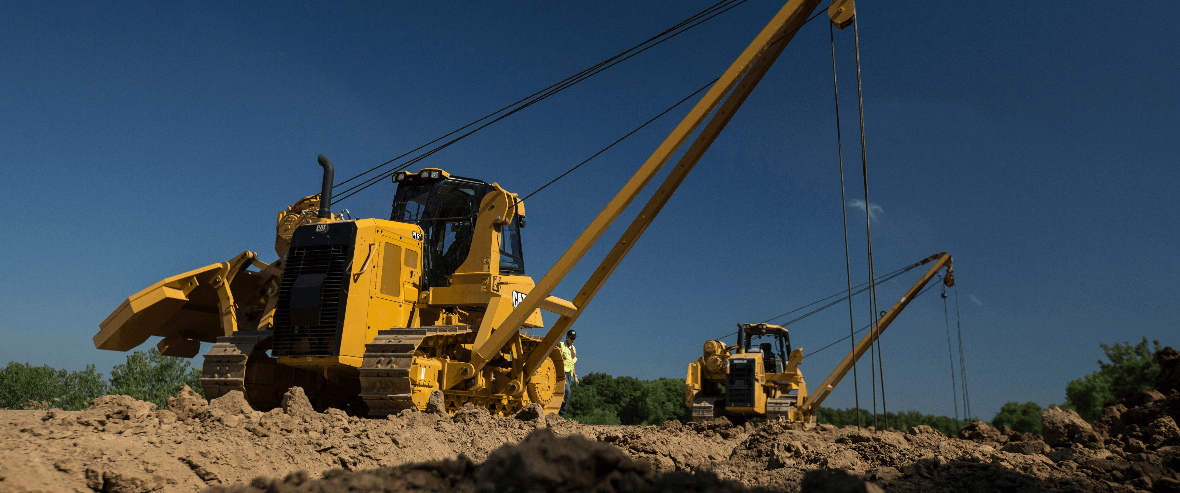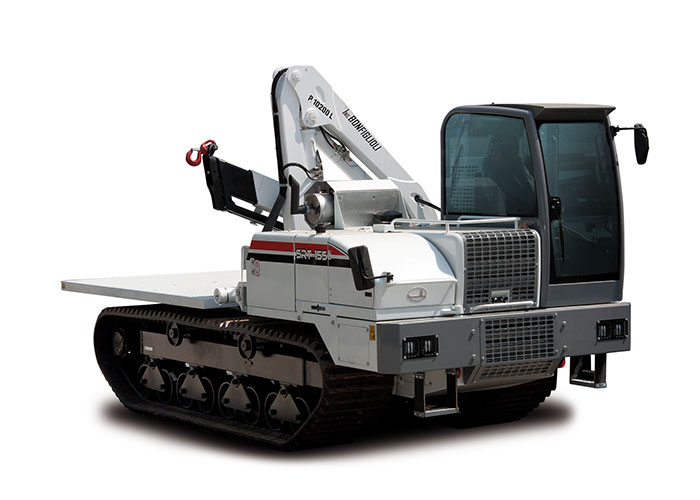Superior rentals squeeze tools: operator’s checklist
A Comprehensive Guide to the Various Kinds Of Oil Field Equipment and Pipeline Equipment Available
The oil and gas market relies heavily on customized tools for effective extraction and transport. Different types of equipment, from drilling rigs to tank, play crucial roles in this intricate procedure. Each tool serves distinct features that contribute to total operational success. Understanding these parts is necessary for anybody associated with the market. As the market advances, so as well do the technologies that sustain it. What developments are on the perspective?

Drilling Rigs: The Backbone of Oil Exploration
Drilling rigs work as the essential machinery in the domain name of oil expedition, making it possible for firms to gain access to hydrocarbon books buried deep below the Earth's surface area. These rigs can be found in numerous kinds, including land rigs, offshore rigs, and mobile units, each designed to run in certain atmospheres. Furnished with sophisticated technology, piercing rigs can pass through geological developments with precision, making certain reliable source extraction. The structural integrity and functional abilities of these rigs are vital, as they should withstand severe conditions and substantial stress. The selection of a boring gear impacts the overall job price and timeline, making it an essential factor to consider for oil companies looking for to maximize their exploration initiatives and make the most of performance in their operations.
Pumps: Vital for Liquid Movement
In the oil extraction procedure, the duty of pumps is significant, assisting in the activity of fluids throughout different phases of manufacturing. Pumps are necessary for transporting petroleum, water, and other fluids from below ground storage tanks to the surface and then with pipes to refineries. They can be found in various types, including centrifugal, positive displacement, and completely submersible pumps, each offering details purposes based on the fluid qualities and operational demands. Centrifugal pumps are frequently utilized for their performance in high-flow applications, while favorable variation pumps succeed in taking care of thick liquids. The selection of pump influences total performance, functional safety and security, and upkeep expenses. Appropriate choice and maintenance of pumps are important for enhancing production and reducing downtime in oil field operations.
Shutoffs: Controlling Circulation and Pressure

Shutoffs play an essential duty in handling the flow and stress of fluids within oil fields and pipes. Different sorts of valves serve unique applications, each designed to accomplish certain features essential for reliable operation - Superior Rentals Contact. Comprehending the features and uses of these shutoffs is important for enhancing system efficiency and safety
Kinds of Valves
Crucial components in oil field operations, shutoffs play a critical role in controlling the flow and pressure of fluids within pipelines and tools. Different sorts of shutoffs are utilized to fulfill the diverse demands of oil and gas production. Typical kinds consist of gateway shutoffs, which offer a straight-line flow and very little stress decrease; world shutoffs, recognized for their strangling capacities; and ball valves, recognized for their quick on/off control. Additionally, check valves prevent backflow, while butterfly valves offer a lightweight service for regulating flow. Each valve kind is designed with specific products and arrangements to withstand the rough problems usually located in oil areas, making certain integrity and effectiveness in operations. Recognizing these types is vital for efficient system administration.
Valve Applications and Functions
While numerous kinds of valves serve distinct objectives, their key applications focus on managing flow and stress within oil and gas systems. Valves such as gate, world, and sphere valves manage fluid movement, making certain peak efficiency and safety. Gate shutoffs are typically utilized for on/off control, giving very little flow resistance. World valves, on the various other hand, offer specific flow regulation, making them ideal for throttling applications. Ball shutoffs are favored for their fast operation and limited securing abilities. In enhancement, pressure relief valves are crucial for preventing system overpressure, guarding tools stability. Generally, the ideal choice and application of valves boost operational performance, guaranteeing the dependable transportation of oil and gas through pipelines and handling facilities.
Compressors: Enhancing Gas Transport
Compressors play a crucial function in the reliable transport of natural gas, making certain that it moves smoothly via pipes over fars away. These tools increase the pressure of gas, permitting it to overcome friction and elevation modifications within the pipeline system. In addition, compressors help with the balancing of supply and need, accommodating changes in intake and manufacturing prices. Various sorts of compressors are utilized in the market, consisting of centrifugal, reciprocating, and rotating screw compressors, each offering distinctive benefits based upon the functional requirements. Regular maintenance of these compressors is vital to take full advantage of performance and decrease downtime, inevitably adding to a reputable gas transportation network. Their vital feature highlights the value of compressors in the general oil and gas facilities.
Storage Tanks: Safe and Effective Fluid Management
Efficient transport of all-natural gas depends on numerous sustaining More Info systems, among which is the appropriate management of storage containers. These containers play a crucial function in safely including fluids, making certain that functional effectiveness is preserved while minimizing ecological dangers. Created from resilient products, they are created to hold up against high stress and destructive aspects. Correctly sized and strategically situated, storage space containers assist in the smooth flow of all-natural gas and other liquids, stopping bottlenecks in supply chains. Normal maintenance and surveillance are critical to find leaks or architectural issues, advertising safety and conformity with regulatory requirements. Ultimately, the efficient management of storage space containers is vital for the overall stability and integrity of the oil and gas industry's liquid handling systems.
Pipeline Systems: Facilities for Transport
Pipeline systems work as the backbone of the oil and gas sector, helping with the reliable transportation of hydrocarbons over huge ranges. These systems include different parts, consisting of pipes, valves, pumps, and compressors, all diligently designed to ensure smooth circulation. The products used in pipeline building, usually steel or high-density polyethylene, are selected for toughness and resistance to deterioration. Pipeline networks can span across land and water, connecting production sites to refineries and distribution. Furthermore, progressed modern technology makes it possible for real-time monitoring of flow rates and pressure levels, enhancing operational efficiency. The strategic placement of these pipelines minimizes environmental impact while optimizing source access, therefore playing a crucial duty in conference power needs internationally.
Security Equipment: Guaranteeing Worker and Environmental Security
The operation of pipeline systems, while essential for power transport, additionally provides considerable safety challenges for employees and the setting. Security equipment plays a significant duty in alleviating these dangers. Personal safety devices (PPE) such as helmets, handwear covers, and non-slip shoes safeguards workers from physical risks. Additionally, gas discovery systems keep an eye on find out here for leaks, ensuring that unsafe compounds do not position a risk to personnel or the bordering environment. Emergency closure systems are necessary for rapidly stopping operations throughout a dilemma, preventing possible calamities. Spill containment products, including absorbents and obstacles, are essential for reducing ecological impact. On the whole, investing in all-inclusive safety and security devices is critical for preserving functional integrity and safeguarding both employees and the environment in the oil and gas market.

Often Asked Questions
Just how Do I Select the Right Oil Field Equipment for My Project?
Picking the ideal oil field tools includes evaluating task specs, budget restraints, and operational needs. Think about factors such as devices reliability, compatibility with existing systems, and the distributor's credibility to assure peak performance and safety and security.
What Are the Maintenance Needs for Oil Field Equipment?
Maintenance needs for oil field devices consist of routine examinations, lubrication, and timely fixings. Operators ought to additionally follow maker standards, monitor efficiency metrics, and guarantee compliance with security regulations to improve long life and efficiency.

Exactly How Can I Guarantee Conformity With Environmental Laws?
To ensure compliance with ecological guidelines, companies must carry out regular audits, apply finest practices, spend in training, preserve proper paperwork, and stay upgraded on legislation (Superior Rentals fusion machines). Partnership with ecological agencies can likewise enhance adherence to guidelines
What Is the Average Life Expectancy of Pipeline Equipment?
The average life expectancy of pipeline tools usually varies from 20 to 50 years, relying on aspects such as worldly quality, ecological problems, and maintenance techniques. Regular assessments can see here now substantially influence durability and functional performance.
How Do I Safely Carry Oil Field Equipment to Remote Locations?
Transporting oil field devices to remote areas calls for mindful planning, including path evaluation, safeguarding authorizations, using suitable cars, and making sure safety and security methods are followed. Proper training and communication among crews are important for successful transportation.